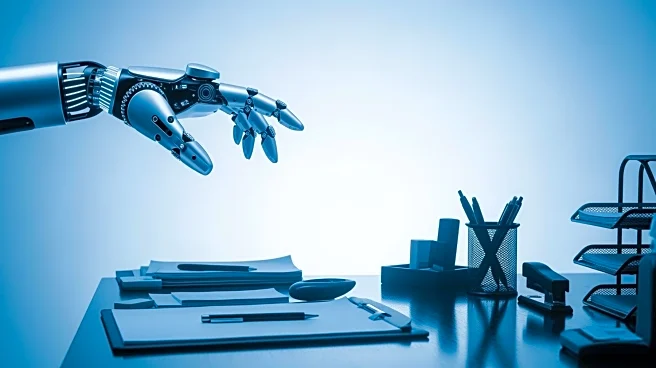What's Happening?
A surge in AI technology is expected to significantly impact the workforce by the end of 2026, with predictions of 100,000 AI workers competing for jobs. Research by Agentic AI firm Gravitee indicates that AI will perform rote tasks, freeing human workers for more
complex challenges. However, this shift poses a risk of widespread job cuts as companies balance investment with returns. A survey of UK executives reveals plans to reduce headcount and freeze recruitment, with AI agents taking over roles previously held by humans. The study highlights HR professionals, software engineers, and customer service managers as roles most vulnerable to AI replacement.
Why It's Important?
The integration of AI into the workforce could lead to significant economic and social changes. While AI offers productivity benefits, it also threatens job security for many workers, potentially leading to increased unemployment and economic disparity. Companies may benefit from cost savings, but the societal impact of job displacement must be addressed. Policymakers and industry leaders need to consider strategies for workforce adaptation and retraining to mitigate negative consequences.
What's Next?
As AI technology continues to advance, companies will need to develop strategies to integrate AI while minimizing job losses. This may involve retraining programs and policies to support affected workers. The ethical use of AI in the workplace will be a key consideration, ensuring that technology enhances rather than replaces human capabilities. Ongoing dialogue between industry leaders, policymakers, and workers will be essential to navigate this transition.
Beyond the Headlines
The rise of AI in the workforce raises ethical questions about the role of technology in society. The potential for AI to replace human jobs challenges traditional notions of employment and economic stability. As AI becomes more prevalent, discussions around its ethical use, governance, and impact on human relationships will become increasingly important.















